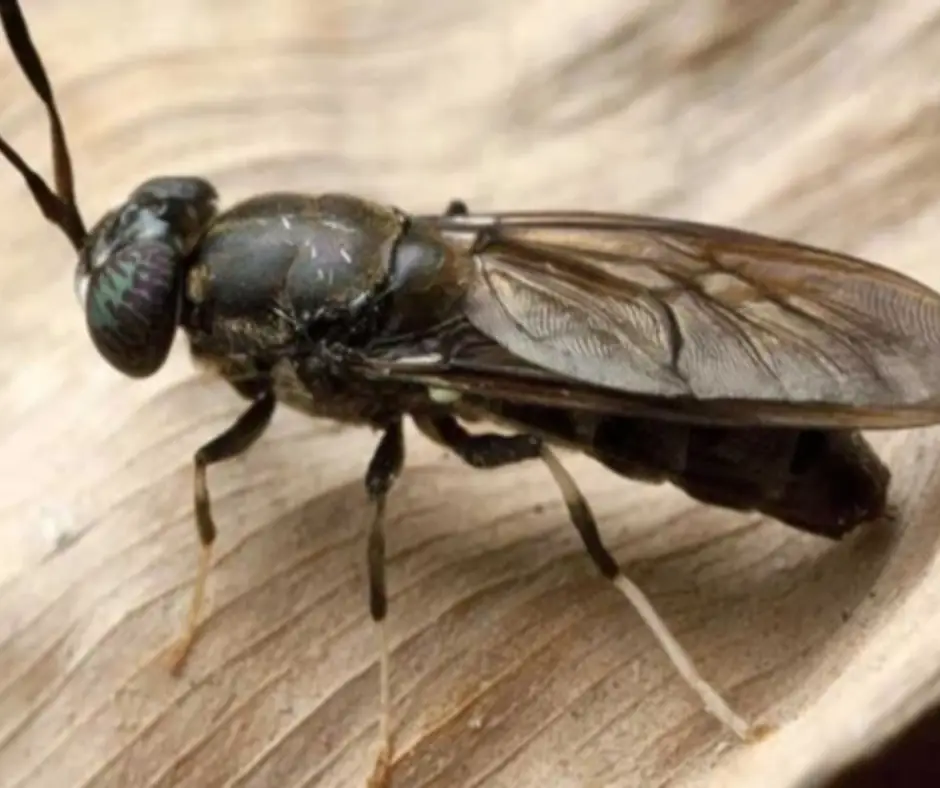- 428-50202 Chwele, Chwele-Sirisia Road, Kilifi
- kwgoldtouchlimited@gmail.com
- +254 705 323 426
Improving yields for one farmer at a time
Farmers in Kenya face multiple problems like the high cost of poultry feed, which accounts for up to 70% of production expenses, poor-quality feed that impacts poultry health and yields, and a lack of business-oriented farming practices limits their profitability. With the Fly4Farms project, we aim to solve these challenges.
By introducing Black Soldier Fly (BSF) technology for farmers, we will be providing farmers with an affordable and nutritious alternative to commercial feed.

Provide the necessary tools and resources to establish BSF farming systems.
Equip farmers with the knowledge and skills to implement and maintain BSF systems.
Ensure farmers successfully integrate BSF farming into their operations.
Compilation of all the feedback from the project and how the community benefits.
Ensure farmers successfully integrate BSF farming into their operations.
Expand the reach and ensure long-term sustainability of the project.
The Fly4Farm Project begins with a thorough assessment of target communities and farmers to identify those who would benefit the most from Black Soldier Fly (BSF) farming.
Baseline surveys are conducted to evaluate access to organic waste, current feeding practices, and the potential for integration with existing farming activities.
Local stakeholders such as farmer groups, cooperatives, and local authorities are engaged to build trust and secure their buy-in for the project.
Outreach efforts focus on highlighting the environmental and economic benefits of BSF farming, ensuring enthusiasm and readiness among participants.
After selecting communities, farmers are equipped with starter kits, including BSF breeding boxes, eggs, and guidelines.
They are trained on maintaining optimal rearing conditions, such as temperature, humidity, and waste types. At the same time, partnerships are formed with local businesses and farms for reliable organic waste collection.
The modular farming setup ensures the ideal warm, humid conditions for BSF growth, with automated or manual systems to control the environment.
This integrated approach ensures a sustainable and efficient BSF farming system.

Once the training is complete, farmers begin setting up their BSF farming systems, following the knowledge and guidelines acquired. Starter kits are distributed, including breeding boxes and initial BSF eggs, enabling farmers to launch operations effectively.
The farmers are also guided in sourcing organic waste and creating ideal rearing conditions, such as maintaining proper temperature and humidity.
During the implementation phase, regular visits by agricultural extension officers and project staff ensure farmers adhere to best practices and address challenges.
Monitoring systems are established to track progress, measure outputs like larvae production, and evaluate the environmental impact of waste reduction.
Ensuring data collection from these systems is done well and accurately to support ongoing adjustments helping farmers optimize their operations.
maintaining close oversight, the project ensures that farmers stay on track, making adjustments where necessary to maximize productivity and long-term success.
Opening up communication and providing continuous feedback loops between farmers and mentors fosters a supportive environment, driving measurable outcomes and sustainable impact.

The Fly4Farms project aims to deliver several critical outputs and outcomes that contribute to both immediate and long-term sustainability for farmers and the wider community.
_____________
Farmers set up operational BSF farms equipped with necessary tools and infrastructure, including breeding boxes, organic waste collection systems, and climate-controlled environments.
_____________
A large number of farmers are equipped with knowledge in BSF farming, waste management, business operations, and market strategies.
_____________
A substantial amount of organic waste is repurposed into valuable products, such as high-protein insect meal and organic fertilizers.
_____________
By selling BSF products (larvae and insect meal) and reducing costs for fish feed, farmers experience increased revenue and financial stability.
_____________
Through the use of organic waste and eco-friendly farming practices, the project promotes environmental sustainability, reducing waste and conserving resources.
_____________
Procuring education on consulted assurance in do. Is sympathize he expression mr no travelling. Preference he he at travelling in resolution.
Farmers then receive comprehensive training through hands-on workshops that cover essential BSF farming techniques, including breeding, feeding, and managing the BSF lifecycle. They are also trained in waste management and the harvesting of larvae, ensuring they can maximize productivity.
Farmers learn essential BSF farming skills, including breeding, feeding, and waste management, along with business skills like record-keeping and cost management.
Farmers practice techniques through workshops, gaining practical experience in real farm settings, and receiving feedback from experts.
Farmers are connected to a network of trainers and agricultural extension officers for continued technical support and guidance throughout their journey.
Long-term support is provided to ensure that farmers can maintain and scale their operations, with a focus on sustainability and market integration.
The Fly4Farms project aims to empower farmers with sustainable practices, business skills, and market access, transitioning poultry farming into a profitable, eco-friendly enterprise while enriching them financially.